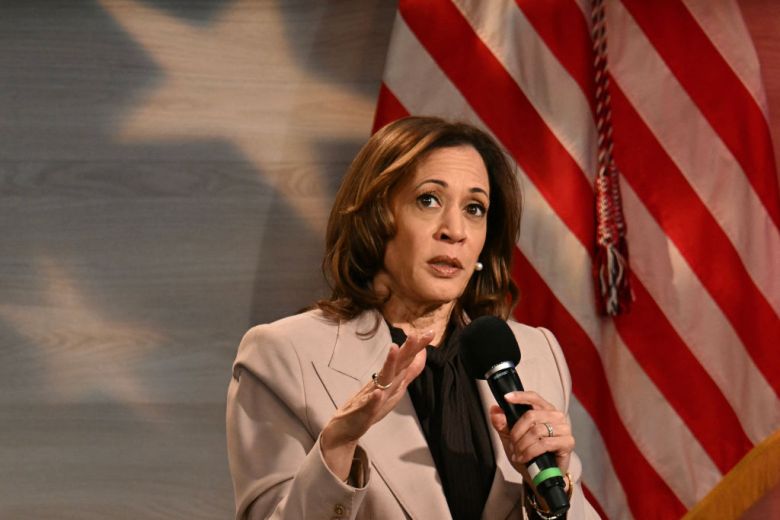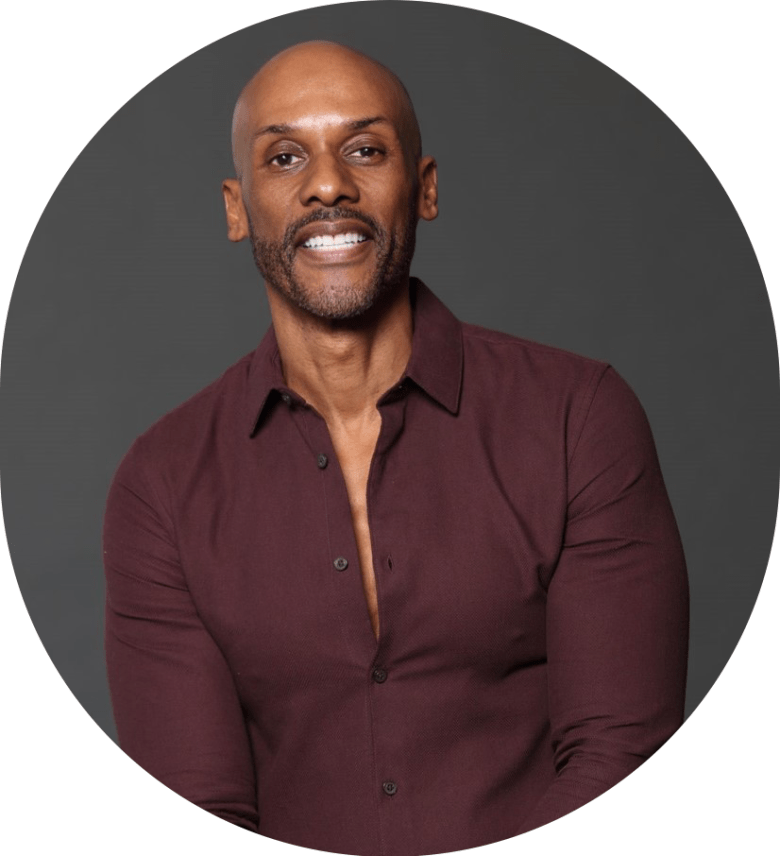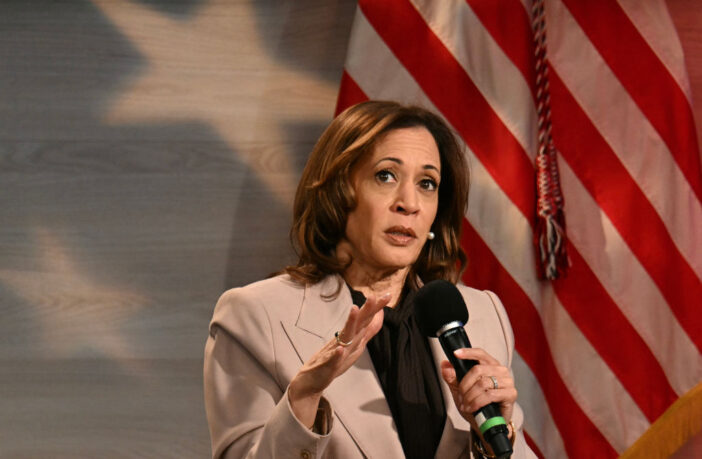“Black Vote, Black Power,” a collaboration between Keith Boykin and Word In Black, examines the issues, the candidates, and what’s at stake for Black America in the 2024 presidential election.
To understand what Kamala Harris said to the National Association of Black Journalists on Tuesday, you gotta understand the Republicans’ cynical race strategy.
Anytime Kamala Harris says something pro-Black, Trump and the Republicans will use it against her to convince white people that she can’t be trusted. And anytime she says something that isn’t pro-Black, they will still use it against her by getting Black people to criticize her for not doing enough.
A month ago, Donald Trump lied to NABJ that Kamala Harris only recently turned Black, so when she sat down with the group in Philadelphia to take questions from Black journalists, she didn’t say everything that some Black people wanted her to say — but she said almost everything she could.
RELATED: Kamala Harris, for the Black People
She forcefully condemned recent lies about Haitian immigrants promoted by Trump and JD Vance: “I know that people are deeply troubled by what is happening to that community in Springfield, Ohio. And it’s gotta stop. And we gotta say that you cannot be entrusted with standing behind the seal of the President of the United States of America, engaging in that hateful rhetoric.” She described Trump’s rhetoric as “a crying shame,” a response based more on empathy than anger.
But, she did not specifically endorse a policy of reparations for slavery. Although she supported legislation to study reparations when she was a senator in California, she spoke in broader terms today as the Democratic presidential nominee.
“We need to speak truth about the generational impact of our history,” she said, mentioning slavery, redlining, and Jim Crow laws. She spoke about student loan debt, medical debt, bias in home appraisals, and Black maternal mortality, but she put the onus to fix these issues more on Congress than executive action.
I support reparations, and I’ve written about it in my two most recent books. But believe it or not, Kamala Harris gave the right answer.
Here’s why.
Her job is to get elected in a country where most Americans oppose reparations. Although 77% of Black Americans support reparations, only 18% of white Americans do. Even in liberal California, nearly two-thirds of white voters oppose reparations. In a country that is 75% white, that’s a non-starter.
We can’t expect a Black woman running for office to explain and sell to white America the complex and unpopular idea of paying reparations to Black people in a three-month campaign while she’s still introducing herself and her policies. To do so is to make her a sacrificial lamb for a movement that we haven’t even built the momentum for on the ground.
To win the presidency, Harris needs at least 42 to 43% of the white vote, which means she has to convince a sufficient number of white Americans that she can represent them —while still holding onto Black and Brown voters. It’s a juggling act. How do you maintain your street cred with Black and Brown voters without alienating sensitive white voters?
RELATED: 10 Ways to Be a Better Black Voter
Some critics point to an out-of-context quote from an interview Harris did in 2019 when she said, “So, I’m not going to sit here and say that I’m going to do something that’s only going to benefit Black people.” What they don’t quote to you is the rest of the answer, where she explains that “any policy that will benefit Black people will benefit all of society.”
Clearly, she supports race-specific policies that benefit Black people, including HBCU funding, affirmative action, and debt relief for Black farmers. But as a Black politician in a predominantly white country, she still has to remind white Americans that those policies benefit them, too, by creating a more equitable society.
Trump is not expected to do anything to help Black people.
A Black Democratic candidate for president faces a frustrating double standard that does not apply to a white Republican like Trump. Trump is not expected to do anything to help Black people, so all he does is show up with a wayward rapper or pastor every four years, and people grade him on a curve because the bar is so low.
But here’s the other part of the equation. Kamala Harris also needs a Democratic Congress to enact her agenda. Republicans now control the House, and Democrats hold a narrow 51-49 seat majority in the U.S. Senate. Republicans are expected to pick up the Senate seat in West Virginia with the retirement of Joe Manchin, and they’re hoping to defeat Democrat Jon Tester in conservative North Dakota. If they win those two seats, Republicans will take control of the Senate and block any progressive legislation, and possibly Supreme Court Justices, for at least the next two years.
 US Vice President and Democratic presidential candidate Kamala Harris speaks during a discussion hosted by NABJ in Philadelphia on September 17, 2024. (Photo by JIM WATSON/AFP via Getty Images)
US Vice President and Democratic presidential candidate Kamala Harris speaks during a discussion hosted by NABJ in Philadelphia on September 17, 2024. (Photo by JIM WATSON/AFP via Getty Images)
If you think Democratic senators are going to win North Dakota and West Virginia with a Democrat at the top of the ticket calling for reparations, you haven’t been paying attention to race issues in America.
There’s a method to the madness from Republicans. They continue to launch racist attacks against Harris because they’re desperately trying to get her to fight on controversial race and culture issues. Trump wants Kamala Harris to attack him for being racist instead of focusing on her broader agenda for America. He knows that if he can get her to engage, they can mislabel her with the “angry Black woman” trope.
That’s why he continues to lie about The Congo releasing inmates from insane asylums into the United States. That’s why Trump and Vance are promoting racist rhetoric about the White House smelling like curry and fried chicken if Kamala Harris gets elected. They’re not just motivating their base. They want Harris to say something to turn off white voters.
She was wise not to take the bait. It may not be the truth we want to hear, but she understood the assignment.

Keith Boykin is a New York Times–bestselling author, TV and film producer, and former CNN political commentator. A graduate of Dartmouth College and Harvard Law School, Keith served in the White House, cofounded the National Black Justice Coalition, cohosted the BET talk show My Two Cents, and taught at the Institute for Research in African-American Studies at Columbia University in New York. He’s a Lambda Literary Award-winning author and editor of seven books. He lives in Los Angeles.
The post How Kamala Harris Talks About Race Issues appeared first on Word In Black.



